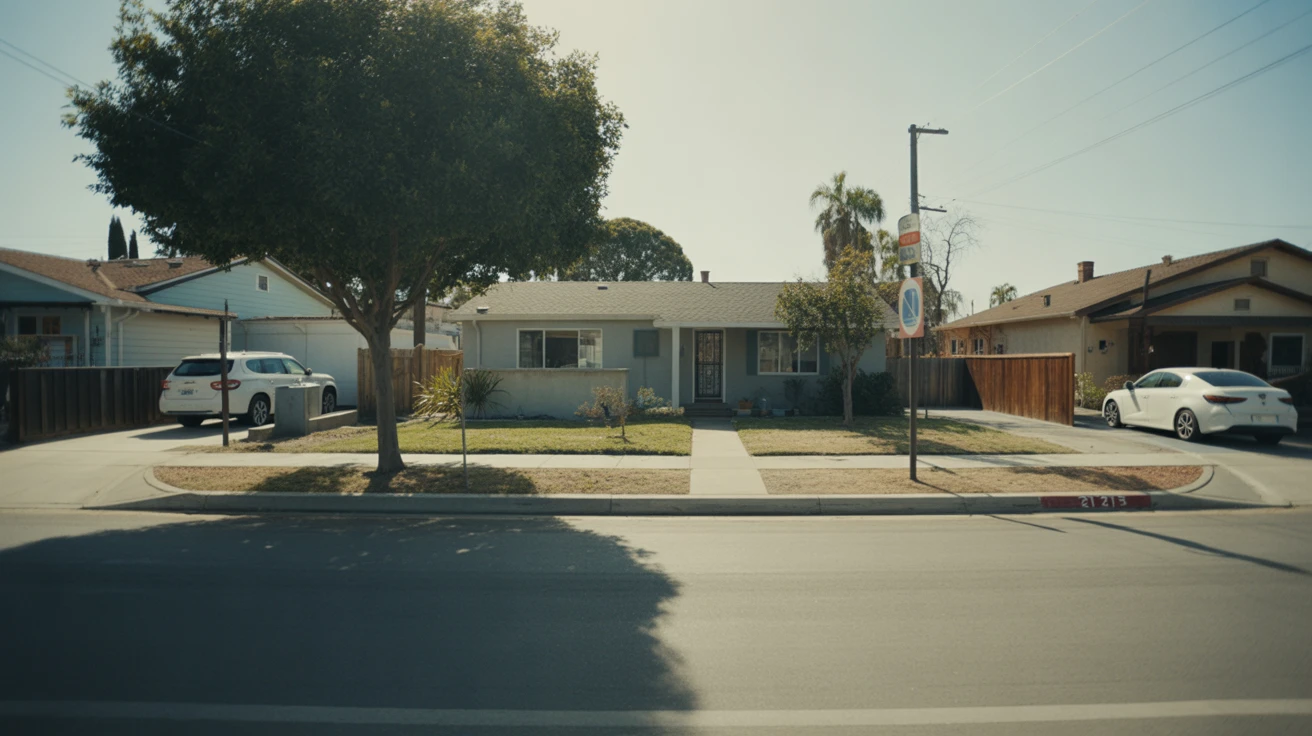El Cajon is considered moderately expensive in 2025, with average rent for a 2-bedroom apartment at $2,100 and slightly higher grocery and utility costs compared to the national average.

Housing Costs in El Cajon
Housing is the biggest expense for most El Cajon residents. In 2025, a typical 2-bedroom apartment rents for $2,000 to $2,200 per month, while a 3-bedroom house has a median purchase price of $650,000. Costs vary by neighborhood:
- Downtown El Cajon: 2BR apartments average $2,300/month; older 3BR houses start at $550,000
- Fletcher Hills: 2BR apartments around $2,100/month; 3BR houses often exceed $700,000
- Granite Hills: 2BR rents average $1,900; 3BR houses typically $600,000 to $675,000
Many newer housing developments in El Cajon have Homeowners Association (HOA) fees, typically $200 to $400 per month. This covers amenities and exterior maintenance.
For homebuyers, property taxes add significantly to monthly housing costs. El Cajon’s property tax rate is 1.1%, so the annual tax on a $650,000 home would be about $7,150, or $600 per month.
Utility Costs
Basic utilities for a 1,000 square foot apartment in El Cajon cost around $250 per month:
| Utility | Typical Monthly Cost |
|---|---|
| Electricity | $110 |
| Natural gas | $40 |
| Water | $60 |
| Trash/recycling | $40 |
Electricity costs spike in the summer due to air conditioning. Most homes in El Cajon are equipped with central AC, which can add $50 or more to monthly summer electric bills.
Internet and cable packages start around $75 per month. Cell phone plans with data average $40 per line monthly.
Groceries and Food
Groceries in El Cajon cost about 5% more than the national average. A single person spends around $400 monthly on groceries, while a family of four averages $1,100.
Some typical grocery costs in El Cajon:
- Gallon of milk: $4.00
- Loaf of bread: $3.50
- Dozen eggs: $3.00
- Pound of chicken: $5.00
Dining out adds up quickly. A meal at an inexpensive restaurant averages $18, while a 3-course dinner for two at a mid-range restaurant often exceeds $75.
Transportation and Gas
Gas prices in El Cajon are about 10% higher than the national average. As of 2025, a gallon of regular unleaded costs around $4.50.
Car insurance premiums in El Cajon average $1,900 per year, or about $160 per month. The city also has a 0.5% sales tax on vehicles in addition to California’s 7.25% sales tax rate.
Public transit options in El Cajon are limited. A monthly transit pass costs $72, but most residents rely on personal vehicles to get around.
Taxes in El Cajon
California has a progressive income tax, with rates ranging from 1% to 12.3%. For a single filer earning $75,000, the average effective state income tax rate is 6%.
El Cajon’s sales tax rate is 8.25%, which includes the 7.25% California state sales tax plus a 1% local tax. Property taxes in El Cajon are around 1.1% of a home’s assessed value.
Monthly Budget Summary
| Expense Category | Single Person | Couple | Family of 4 |
|---|---|---|---|
| Housing (rent) | $1,600 | $2,100 | $2,800 |
| Utilities | $200 | $250 | $400 |
| Groceries | $400 | $700 | $1,100 |
| Transportation | $300 | $500 | $800 |
| Healthcare | $250 | $500 | $800 |
| Discretionary | $500 | $800 | $1,200 |
| Total Monthly Budget | $3,250 | $4,850 | $7,100 |
Note: All figures are estimates and represent gross monthly income (pre-tax). Actual budgets vary depending on lifestyle, family size, and housing choices.
Lifestyle and Affordability
While El Cajon’s living costs are lower than coastal areas like San Diego, it’s still relatively expensive. Housing is the biggest factor, with prices pushed up by proximity to job centers and desirable neighborhoods.
Residents often face tradeoffs between housing costs, commute times, and neighborhood amenities. Newer homes in master-planned communities command a premium, while older homes offer lower prices but may have higher maintenance costs.
To live comfortably in El Cajon, a single person needs an annual gross income around $39,000 ($3,250/month). For a couple, $58,000 ($4,850/month) is a reasonable minimum target. Families with children should aim for $85,000 ($7,100/month) or more.
Frequently Asked Questions
What salary do you need to live in El Cajon?
To afford basic expenses, an individual should earn at least $39,000 per year ($3,250/month) before taxes. Couples need around $58,000 ($4,850/month). Families with kids may require $85,000 or more.
How much is an apartment in El Cajon?
In 2025, a typical 2-bedroom apartment in El Cajon rents for $2,000 to $2,200 per month. Prices are higher in newer buildings and desirable neighborhoods like Fletcher Hills.
What are the top 3 costs that surprise newcomers to El Cajon?
New El Cajon residents are often surprised by 1) high housing costs relative to inland areas, 2) elevated grocery and gas prices, and 3) California’s progressive income tax rates.
How much are property taxes in El Cajon?
El Cajon’s property tax rate is around 1.1% of a home’s assessed value. For a house worth $650,000, annual property taxes would be about $7,150, or roughly $600 per month.
Is El Cajon cheaper than living in San Diego?
Yes, El Cajon’s living costs are generally 10-20% lower than San Diego proper. The biggest difference is in housing, with El Cajon offering more affordable options, especially for families.
What’s the sales tax rate in El Cajon?
As of 2025, El Cajon’s total sales tax rate is 8.25% – this includes California’s base rate of 7.25% plus a 1% local tax. For vehicle purchases, an additional 0.5% city tax applies on top of state taxes.
